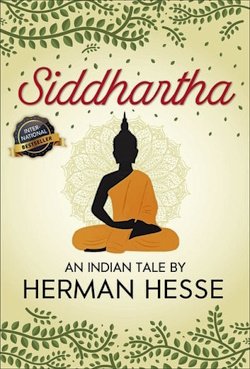With half of a smile, with an unwavering openness and kindness, Gotama looked into the stranger’s eyes and bid him to leave with a hardly noticeable gesture.
“You are wise, oh Samana,” the venerable one spoke.
“You know how to talk wisely, my friend. Be aware of too much wisdom!”
The Buddha turned away, and his glance and half of a smile remained forever etched in Siddhartha’s memory.
I have never before seen a person glance and smile, sit and walk this way, he thought; truly, I wish to be able to glance and smile, sit and walk this way, too, thus free, thus venerable, thus concealed, thus open, thus childlike and mysterious. Truly, only a person who has succeeded in reaching the Siddhartha: An Open-Source Text
29

Chapter 3. Gotama
innermost part of his self would glance and walk this way. Well so, I also will seek to reach the innermost part of my self.
I saw a man, Siddhartha thought, a single man, before whom I would have to lower my glance. I do not want to lower my glance before any other, not before any other. No teachings will entice me any more, since this man’s teachings have not enticed me.
I am deprived by the Buddha, thought Siddhartha, I am deprived, and even more he has given to me. He has deprived me of my friend, the one who had believed in me and now believes in him, who had been my shadow and is now Gotama’s shadow. But he has given me Siddhartha, myself.
Well of Knowledge, Library of Congress
Topics Worth Investigating
1. What are the Four Noble Truths and the Eightfold Path?
2. What is Buddha’s distinction in this chapter between seeking salvation and seeking knowledge? Does Buddha reject knowledge as a way to ultimate truth? Is intuition necessarily irrational? In the Noble Eightfold Path, Buddha states under the topic of “Unprofitable Questions”: Should anyone say that he does not wish to lead the holy life under the Blessed One, unless the Blessed One first tells him, whether the world is eternal or temporal, finite or infinite; whether the life principle is identical with the body, or something different; whether the Perfect One continues after death, and so on such a man would die, ere the Perfect One could tell him all this.
30
Siddhartha: An Open-Source Text
Chapter 3. Gotama
It is as if a man were pierced by a poisoned arrow, and his friends, companions, or near relations, should send for a surgeon; but that man should say: “I will not have this arrow pulled out, until I know who the man is that has wounded me: whether he is a noble, a priest, a citizen, or a servant”; or: “what his name is, and to what family he belongs”; or: “whether he is tall, or short, or of medium height.” Verily, such a man would die, ere he could adequately learn all this.2
3. As Govinda became one of the followers of the Buddha, Siddhartha points out that the teachings require that Govina now renounce his free will. As Siddhartha recounts toward the end of this chapter. . .
. . . the uniformity of the world, that everything which happens is connected, that the great and the small things are all encompassed by the same forces of time, by the same law of causes, of coming into being and of dying. . .
Would it be possible for anyone to have free will in a deterministic3
world? If not, then how could a person “choose” to follow the Buddha?
On the other hand, if the world were indeterministic, could anyone choose not to choose ( i.e. , not exercise free will)? Clarify whether or not, and in what manner, it would be possible for a person to give up his or her free will in an indeterministic world.
4. If the doctrine of the causal unity of all aspects of the world is accurate, then no events, even human choices, could be other than what they are, because of causal necessity relating events to each other. If human choices could not have been otherwise, then how could we describe some choices as “good” ones and others as “bad” ones?
5. What does Siddhartha mean when he states that the Buddha gave him
“Siddhartha, himself”? From the point of view of the Buddha, it this result what the Buddha had intended for Siddhartha?
6. Is Siddhartha’s injunction that he will never lower his glance before another man justified from this one experience? If so, then is the finding of
“inner-self” consequently seen to be a wholly personal undertaking or is it salvation from self?
2.
Paul Carus. Buddha, The Word. 1915.
3.
I.e. , determinism is the doctrine that every event, even mental events (or thoughts), have a cause; indeterminism is the doctrine that some events are uncaused.
Siddhartha: An Open-Source Text
31

Chapter 4
Awakening
Buddha, Antiquities Project
From the reading. . .

























